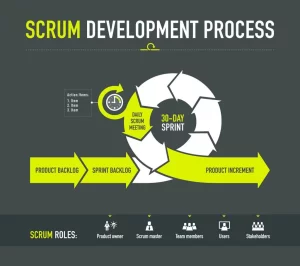<?php
/**
* CHAPTER 7: DATABASE OPERATIONS
*
* This chapter demonstrates how to interact with the WordPress database safely and efficiently.
* WordPress provides the $wpdb class for database operations, which offers security and convenience.
*
* Key concepts covered:
* - Creating custom database tables
* - CRUD operations (Create, Read, Update, Delete)
* - Data sanitization and validation
* - Proper use of WordPress database functions
* - Security best practices
* - Admin interface for data management
*
* IMPORTANT: WordPress Database Class ($wpdb)
* The global $wpdb object provides access to WordPress database functions:
* - $wpdb->prefix: WordPress table prefix (usually 'wp_')
* - $wpdb->insert(): Insert data into tables
* - $wpdb->update(): Update existing data
* - $wpdb->delete(): Delete data from tables
* - $wpdb->get_results(): Get multiple rows
* - $wpdb->get_row(): Get single row
* - $wpdb->get_var(): Get single value
* - $wpdb->query(): Execute raw SQL queries
* - $wpdb->prepare(): Prepare SQL statements (prevents SQL injection)
* - $wpdb->get_charset_collate(): Get proper charset and collation
*
* WordPress Database Table Types:
* - Core tables: posts, users, options, etc.
* - Custom tables: Created by plugins for specific needs
* - Meta tables: Store additional data (postmeta, usermeta, etc.)
*
* Data Types for MySQL:
* - TINYINT: -128 to 127 (or 0 to 255 unsigned)
* - SMALLINT: -32,768 to 32,767
* - MEDIUMINT: -8,388,608 to 8,388,607
* - INT: -2,147,483,648 to 2,147,483,647
* - BIGINT: Large integer values
* - TINYTEXT: Up to 255 characters
* - TEXT: Up to 65,535 characters
* - MEDIUMTEXT: Up to 16,777,215 characters
* - LONGTEXT: Up to 4,294,967,295 characters
* - VARCHAR(n): Variable-length string, up to n characters
* - CHAR(n): Fixed-length string, exactly n characters
* - DATE: Date values (YYYY-MM-DD)
* - DATETIME: Date and time values (YYYY-MM-DD HH:MM:SS)
* - TIMESTAMP: Timestamp values
* - DECIMAL(m,d): Fixed-point decimal numbers
* - FLOAT: Floating-point numbers
* - DOUBLE: Double-precision floating-point numbers
*/
// SECTION 1: TABLE CREATION
// Creating custom database tables in WordPress
/**
* Function to create a custom table
*
* This function demonstrates the proper way to create custom tables in WordPress:
* 1. Use global $wpdb object for database access
* 2. Use $wpdb->prefix to ensure proper table naming
* 3. Use $wpdb->get_charset_collate() for proper character set
* 4. Use dbDelta() for table creation (handles updates automatically)
* 5. Include the upgrade.php file for dbDelta() function
*
* Table Structure Explanation:
* - id: Primary key, auto-increment, medium integer (up to 8 million records)
* - name: Short text field using TINYTEXT (up to 255 characters)
* - value: Longer text field using TEXT (up to 65,535 characters)
* - PRIMARY KEY: Defines the unique identifier for each row
*
* Alternative Column Types You Can Use:
* - BIGINT for larger ID numbers
* - VARCHAR(255) for fixed-length strings
* - LONGTEXT for very long text content
* - DATETIME for date/time fields
* - DECIMAL(10,2) for monetary values
* - BOOLEAN for true/false values
* - JSON for structured data (MySQL 5.7+)
*/
function hth_create_custom_table()
{
global $wpdb; // Access WordPress database object
// Create table name with WordPress prefix
// This ensures compatibility with multisite and custom prefixes
$table_name = $wpdb->prefix . 'hth_custom_table';
// Get the proper charset and collation for the site
// This ensures proper character encoding for international characters
$charset_collate = $wpdb->get_charset_collate();
// SQL query to create the table
// Note: dbDelta() is very particular about format - spaces and capitalization matter!
$sql = "CREATE TABLE IF NOT EXISTS $table_name (
id mediumint(9) NOT NULL AUTO_INCREMENT,
name tinytext NOT NULL,
value text NOT NULL,
created_at datetime DEFAULT CURRENT_TIMESTAMP,
updated_at datetime DEFAULT CURRENT_TIMESTAMP ON UPDATE CURRENT_TIMESTAMP,
PRIMARY KEY (id)
) $charset_collate;";
// Include the upgrade script that contains dbDelta()
require_once(ABSPATH . 'wp-admin/includes/upgrade.php');
// Execute the table creation
// dbDelta() is WordPress's preferred method for table creation
// It can handle both creation and updates to existing tables
dbDelta($sql);
}
// Hook to create table when theme is switched (for demonstration)
// In production, you'd typically use plugin activation hooks
add_action('after_switch_theme', 'hth_create_custom_table');
// SECTION 2: INSERT OPERATIONS
// Adding new data to the database
/**
* Function to insert data into the custom table
*
* This function demonstrates the proper way to insert data:
* 1. Use global $wpdb object
* 2. Sanitize all input data before insertion
* 3. Use $wpdb->insert() method for type-safe insertion
* 4. Handle return values to check for success/failure
*
* WordPress Sanitization Functions:
* - sanitize_text_field(): For single-line text
* - sanitize_textarea_field(): For multi-line text
* - sanitize_email(): For email addresses
* - sanitize_url(): For URLs
* - sanitize_key(): For database keys
* - sanitize_html_class(): For CSS classes
* - sanitize_file_name(): For file names
* - absint(): For positive integers
* - intval(): For integers
* - floatval(): For floating point numbers
* - wp_kses(): For HTML content (allows specific tags)
* - wp_strip_all_tags(): Remove all HTML tags
*
* @param string $name The name to insert
* @param string $value The value to insert
* @return int|false The row ID of the inserted row, or false on failure
*/
function hth_insert_custom_data($name, $value)
{
global $wpdb; // Access WordPress database object
// Get table name with prefix
$table_name = $wpdb->prefix . 'hth_custom_table';
// Prepare the data for insertion with proper sanitization
// This prevents SQL injection and ensures data integrity
$data = array(
'name' => sanitize_text_field($name), // Sanitize single-line text
'value' => sanitize_textarea_field($value), // Sanitize multi-line text
'created_at' => current_time('mysql'), // WordPress function for current time
'updated_at' => current_time('mysql') // WordPress function for current time
);
// Optional: Define data formats for better type safety
// %s = string, %d = integer, %f = float
$formats = array(
'%s', // name
'%s', // value
'%s', // created_at
'%s' // updated_at
);
// Insert the data into the table
// $wpdb->insert() returns the number of rows inserted, or false on failure
$result = $wpdb->insert($table_name, $data, $formats);
// Return the inserted row ID or false
if ($result !== false) {
return $wpdb->insert_id; // Get the ID of the inserted row
}
return false; // Insertion failed
}
/**
* Function to check if the custom table exists and insert initial data
*
* This demonstrates:
* - Checking if a table exists
* - Conditional data insertion
* - Using WordPress database methods safely
*
* Table Existence Check Methods:
* - SHOW TABLES LIKE: Check if table exists
* - DESCRIBE table_name: Get table structure
* - SELECT 1 FROM table_name LIMIT 1: Check if table has data
*/
function hth_check_and_insert_initial_data()
{
global $wpdb;
$table_name = $wpdb->prefix . 'hth_custom_table';
// Check if the table exists using SHOW TABLES
// $wpdb->get_var() returns a single value
$table_exists = $wpdb->get_var("SHOW TABLES LIKE '$table_name'") == $table_name;
if ($table_exists) {
// Check if table already has data to avoid duplicates
$count = $wpdb->get_var("SELECT COUNT(*) FROM $table_name");
if ($count == 0) {
// Insert initial sample data
hth_insert_custom_data('Sample Name', 'Sample Value');
hth_insert_custom_data('WordPress', 'Content Management System');
hth_insert_custom_data('PHP', 'Server-side scripting language');
}
}
}
// SECTION 3: READ OPERATIONS
// Retrieving data from the database
/**
* Function to retrieve data from the custom table
*
* This function demonstrates various ways to retrieve data:
* - Using $wpdb->get_results() for multiple rows
* - Using different output formats (ARRAY_A, OBJECT, ARRAY_N)
* - Basic error handling
*
* WordPress Database Retrieval Methods:
* - get_results(): Returns array of rows
* - get_row(): Returns single row
* - get_col(): Returns single column as array
* - get_var(): Returns single value
*
* Output Formats:
* - OBJECT (default): Returns objects with property names
* - ARRAY_A: Returns associative arrays
* - ARRAY_N: Returns numerical arrays
*
* @param int $limit Optional. Number of records to retrieve
* @param string $order_by Optional. Column to order by
* @param string $order Optional. ASC or DESC
* @return array|null Array of results or null on failure
*/
function hth_get_custom_data($limit = null, $order_by = 'id', $order = 'ASC')
{
global $wpdb;
$table_name = $wpdb->prefix . 'hth_custom_table';
// Build the query with optional parameters
$sql = "SELECT * FROM $table_name ORDER BY $order_by $order";
// Add limit if specified
if ($limit !== null) {
$sql .= " LIMIT " . absint($limit);
}
// Retrieve all data from the custom table
// ARRAY_A returns associative arrays instead of objects
$results = $wpdb->get_results($sql, ARRAY_A);
return $results;
}
/**
* Function to get a single record by ID
*
* Demonstrates:
* - Using $wpdb->prepare() to prevent SQL injection
* - Using $wpdb->get_row() for single row retrieval
* - Parameter validation
*
* @param int $id The record ID to retrieve
* @return array|null Single record or null if not found
*/
function hth_get_custom_data_by_id($id)
{
global $wpdb;
// Validate input
$id = absint($id);
if ($id <= 0) {
return null;
}
$table_name = $wpdb->prefix . 'hth_custom_table';
// Use $wpdb->prepare() to safely include variables in SQL
// %d = integer, %s = string, %f = float
$sql = $wpdb->prepare("SELECT * FROM $table_name WHERE id = %d", $id);
// Get single row
$result = $wpdb->get_row($sql, ARRAY_A);
return $result;
}
/**
* Function to search data by name
*
* Demonstrates:
* - Using LIKE operator for partial matching
* - Proper escaping of LIKE wildcards
* - Case-insensitive searching
*
* @param string $search_term The term to search for
* @return array Array of matching records
*/
function hth_search_custom_data($search_term)
{
global $wpdb;
$table_name = $wpdb->prefix . 'hth_custom_table';
// Escape the search term for LIKE query
$search_term = '%' . $wpdb->esc_like($search_term) . '%';
// Use prepare for safe LIKE queries
$sql = $wpdb->prepare("SELECT * FROM $table_name WHERE name LIKE %s", $search_term);
$results = $wpdb->get_results($sql, ARRAY_A);
return $results;
}
// SECTION 4: UPDATE OPERATIONS
// Modifying existing data
/**
* Function to update data in the custom table
*
* This function demonstrates:
* - Using $wpdb->update() method
* - Proper data sanitization for updates
* - Using WHERE conditions safely
* - Return value handling
*
* $wpdb->update() Parameters:
* - $table: Table name
* - $data: Array of column => value pairs to update
* - $where: Array of column => value pairs for WHERE clause
* - $format: Array of formats for $data values
* - $where_format: Array of formats for $where values
*
* @param int $id The record ID to update
* @param string $name The new name value
* @param string $value The new value
* @return bool True on success, false on failure
*/
function hth_update_custom_data($id, $name, $value)
{
global $wpdb;
// Validate input
$id = absint($id);
if ($id <= 0) {
return false;
}
$table_name = $wpdb->prefix . 'hth_custom_table';
// Prepare the data for updating with proper sanitization
$data = array(
'name' => sanitize_text_field($name),
'value' => sanitize_textarea_field($value),
'updated_at' => current_time('mysql')
);
// Define WHERE condition
$where = array('id' => $id);
// Define data formats for type safety
$formats = array('%s', '%s', '%s'); // Data formats
$where_formats = array('%d'); // Where formats
// Update the data in the table
// Returns number of rows updated, or false on failure
$result = $wpdb->update($table_name, $data, $where, $formats, $where_formats);
return $result !== false;
}
// SECTION 5: DELETE OPERATIONS
// Removing data from the database
/**
* Function to delete data from the custom table
*
* This function demonstrates:
* - Using $wpdb->delete() method
* - Safe deletion with WHERE conditions
* - Input validation before deletion
* - Return value checking
*
* $wpdb->delete() Parameters:
* - $table: Table name
* - $where: Array of column => value pairs for WHERE clause
* - $where_format: Array of formats for $where values
*
* @param int $id The record ID to delete
* @return bool True on success, false on failure
*/
function hth_delete_custom_data($id)
{
global $wpdb;
// Validate input
$id = absint($id);
if ($id <= 0) {
return false;
}
$table_name = $wpdb->prefix . 'hth_custom_table';
// Define WHERE condition for deletion
$where = array('id' => $id);
// Define format for WHERE condition
$where_format = array('%d');
// Delete the data from the table
// Returns number of rows deleted, or false on failure
$result = $wpdb->delete($table_name, $where, $where_format);
return $result !== false;
}
/**
* Function to delete all data from the custom table
*
* Demonstrates:
* - Using $wpdb->query() for custom SQL
* - TRUNCATE vs DELETE differences
* - Bulk operations
*
* TRUNCATE vs DELETE:
* - TRUNCATE: Faster, resets auto-increment, can't use WHERE
* - DELETE: Slower, preserves auto-increment, can use WHERE
*
* @param bool $reset_auto_increment Whether to reset the auto-increment counter
* @return bool True on success, false on failure
*/
function hth_delete_all_custom_data($reset_auto_increment = false)
{
global $wpdb;
$table_name = $wpdb->prefix . 'hth_custom_table';
if ($reset_auto_increment) {
// Use TRUNCATE to reset auto-increment
$result = $wpdb->query("TRUNCATE TABLE $table_name");
} else {
// Use DELETE to preserve auto-increment
$result = $wpdb->query("DELETE FROM $table_name");
}
return $result !== false;
}
// SECTION 6: ADMIN INTERFACE
// Creating admin interface for data management
/**
* Function to display custom data in the admin area
*
* This function demonstrates:
* - HTML table creation for data display
* - Proper data escaping for output
* - Handling empty data sets
* - Using WordPress admin styles
*
* WordPress Output Escaping Functions:
* - esc_html(): Escape HTML entities
* - esc_attr(): Escape HTML attributes
* - esc_url(): Escape URLs
* - esc_js(): Escape JavaScript
* - esc_textarea(): Escape textarea content
* - wp_kses(): Allow specific HTML tags
* - wp_kses_post(): Allow post content HTML tags
*/
function hth_display_custom_data()
{
// Get all data from the custom table
$data = hth_get_custom_data();
if (!empty($data)) {
echo '<div class="wrap">';
echo '<h2>' . __('Custom Data', 'hth-sample-plugin') . '</h2>';
// Use WordPress admin table styling
echo '<table class="wp-list-table widefat fixed striped">';
echo '<thead>';
echo '<tr>';
echo '<th scope="col" class="manage-column">' . __('ID', 'hth-sample-plugin') . '</th>';
echo '<th scope="col" class="manage-column">' . __('Name', 'hth-sample-plugin') . '</th>';
echo '<th scope="col" class="manage-column">' . __('Value', 'hth-sample-plugin') . '</th>';
echo '<th scope="col" class="manage-column">' . __('Created', 'hth-sample-plugin') . '</th>';
echo '<th scope="col" class="manage-column">' . __('Actions', 'hth-sample-plugin') . '</th>';
echo '</tr>';
echo '</thead>';
echo '<tbody>';
foreach ($data as $row) {
echo '<tr>';
echo '<td>' . esc_html($row['id']) . '</td>';
echo '<td>' . esc_html($row['name']) . '</td>';
echo '<td>' . esc_html($row['value']) . '</td>';
echo '<td>' . esc_html($row['created_at']) . '</td>';
echo '<td>';
echo '<a href="#" class="button button-small" onclick="editRecord(' . esc_attr($row['id']) . ')">' . __('Edit', 'hth-sample-plugin') . '</a> ';
echo '<a href="#" class="button button-small button-link-delete" onclick="deleteRecord(' . esc_attr($row['id']) . ')">' . __('Delete', 'hth-sample-plugin') . '</a>';
echo '</td>';
echo '</tr>';
}
echo '</tbody>';
echo '</table>';
echo '</div>';
} else {
echo '<div class="wrap">';
echo '<h2>' . __('Custom Data', 'hth-sample-plugin') . '</h2>';
echo '<p>' . __('No data found.', 'hth-sample-plugin') . '</p>';
echo '</div>';
}
}
/**
* Function to add a menu item in the admin area
*
* This function demonstrates:
* - Adding top-level admin menu pages
* - Using WordPress dashicons
* - Setting menu positions
* - Proper capability checking
*
* add_menu_page() Parameters:
* - $page_title: Page title in browser tab
* - $menu_title: Menu title in sidebar
* - $capability: Required user capability
* - $menu_slug: Unique menu slug
* - $callback: Function to display page content
* - $icon_url: Menu icon (dashicon or URL)
* - $position: Menu position (lower numbers = higher position)
*
* Common Menu Positions:
* - 2: Dashboard
* - 5: Posts
* - 10: Media
* - 15: Links
* - 20: Pages
* - 25: Comments
* - 59: Separator
* - 60: Appearance
* - 65: Plugins
* - 70: Users
* - 75: Tools
* - 80: Settings
* - 99: Separator
*/
function hth_add_custom_menu_item()
{
add_menu_page(
__('Custom Data', 'hth-sample-plugin'), // Page title
__('Custom Data', 'hth-sample-plugin'), // Menu title
'manage_options', // Capability required
'hth-custom-data', // Menu slug
'hth_display_custom_data', // Callback function
'dashicons-database', // Icon (dashicon)
6 // Position (after Posts)
);
}
// Hook to add menu item to admin
add_action('admin_menu', 'hth_add_custom_menu_item');
// SECTION 7: PLUGIN LIFECYCLE HOOKS
// Functions for plugin activation and deactivation
/**
* Function to register a custom database table on plugin activation
*
* This function runs when the plugin is activated and:
* - Creates the custom table
* - Inserts initial data
* - Sets up any necessary options
*
* Plugin activation is the proper time to:
* - Create database tables
* - Set default options
* - Create necessary directories
* - Schedule cron jobs
* - Clear caches
*/
function hth_activate_plugin()
{
// Create the custom table
hth_create_custom_table();
// Insert initial data into the custom table
// This is optional - remove if you don't want sample data
hth_check_and_insert_initial_data();
// Set plugin version for future updates
add_option('hth_plugin_version', '1.0.0');
// Set activation timestamp
add_option('hth_plugin_activated', current_time('mysql'));
}
/**
* Function to deactivate the plugin and remove the custom table
*
* This function runs when the plugin is deactivated and:
* - Removes the custom table
* - Cleans up plugin options
* - Removes scheduled cron jobs
*
* Plugin deactivation cleanup:
* - Remove custom tables (if desired)
* - Delete plugin options
* - Clear scheduled events
* - Remove temporary files
*
* Note: Some plugins preserve data on deactivation
* and only remove it on uninstall
*/
function hth_deactivate_plugin()
{
global $wpdb;
$table_name = $wpdb->prefix . 'hth_custom_table';
// SQL query to drop the table
$sql = "DROP TABLE IF EXISTS $table_name;";
// Use $wpdb->query() for DROP TABLE operations
// dbDelta() is not suitable for dropping tables
$wpdb->query($sql);
// Clean up plugin options
delete_option('hth_plugin_version');
delete_option('hth_plugin_activated');
}
/**
* ADDITIONAL DATABASE OPERATIONS AND BEST PRACTICES:
*
* 1. Advanced Query Examples:
*
* // JOIN queries
* $sql = "SELECT p.post_title, m.meta_value
* FROM {$wpdb->posts} p
* JOIN {$wpdb->postmeta} m ON p.ID = m.post_id
* WHERE m.meta_key = '_custom_field'";
*
* // COUNT queries
* $count = $wpdb->get_var("SELECT COUNT(*) FROM $table_name WHERE name LIKE '%search%'");
*
* // GROUP BY queries
* $results = $wpdb->get_results("SELECT name, COUNT(*) as count FROM $table_name GROUP BY name");
*
* // Date range queries
* $sql = $wpdb->prepare("SELECT * FROM $table_name WHERE created_at BETWEEN %s AND %s",
* '2023-01-01', '2023-12-31');
*
* 2. Transaction Support:
*
* // Start transaction
* $wpdb->query('START TRANSACTION');
*
* // Perform multiple operations
* $result1 = $wpdb->insert($table_name, $data1);
* $result2 = $wpdb->insert($table_name, $data2);
*
* // Commit or rollback
* if ($result1 && $result2) {
* $wpdb->query('COMMIT');
* } else {
* $wpdb->query('ROLLBACK');
* }
*
* 3. Performance Optimization:
*
* // Use indexes for frequently queried columns
* $wpdb->query("ALTER TABLE $table_name ADD INDEX idx_name (name)");
*
* // Use LIMIT for large datasets
* $results = $wpdb->get_results("SELECT * FROM $table_name LIMIT 10 OFFSET 20");
*
* // Use prepared statements for repeated queries
* $stmt = $wpdb->prepare("SELECT * FROM $table_name WHERE name = %s", $name);
*
* 4. Error Handling:
*
* // Check for errors after database operations
* if ($wpdb->last_error) {
* error_log('Database error: ' . $wpdb->last_error);
* }
*
* // Enable error reporting during development
* $wpdb->show_errors();
*
* 5. Security Considerations:
*
* // Always use $wpdb->prepare() for dynamic queries
* $sql = $wpdb->prepare("SELECT * FROM $table_name WHERE id = %d", $id);
*
* // Validate and sanitize all input
* $name = sanitize_text_field($_POST['name']);
* $email = sanitize_email($_POST['email']);
*
* // Use appropriate capabilities for admin functions
* if (!current_user_can('manage_options')) {
* wp_die('Access denied');
* }
*
* 6. Backup and Migration:
*
* // Export data
* function export_custom_data() {
* global $wpdb;
* $table_name = $wpdb->prefix . 'hth_custom_table';
* $data = $wpdb->get_results("SELECT * FROM $table_name", ARRAY_A);
* return json_encode($data);
* }
*
* // Import data
* function import_custom_data($json_data) {
* $data = json_decode($json_data, true);
* foreach ($data as $row) {
* hth_insert_custom_data($row['name'], $row['value']);
* }
* }
*
* 7. Database Versioning:
*
* // Track database version for updates
* function check_database_version() {
* $current_version = get_option('hth_db_version', '1.0');
* if (version_compare($current_version, '1.1', '<')) {
* upgrade_database_to_1_1();
* update_option('hth_db_version', '1.1');
* }
* }
*
* 8. Multisite Considerations:
*
* // Use appropriate table prefix for multisite
* $table_name = $wpdb->base_prefix . 'hth_custom_table'; // Global table
* $table_name = $wpdb->prefix . 'hth_custom_table'; // Per-site table
*
* // Check if multisite
* if (is_multisite()) {
* // Handle multisite-specific logic
* }
*/

Ep 5: Databases, Admin Menus & Secure Data Handling (Mastering WordPress Plugin Development)












